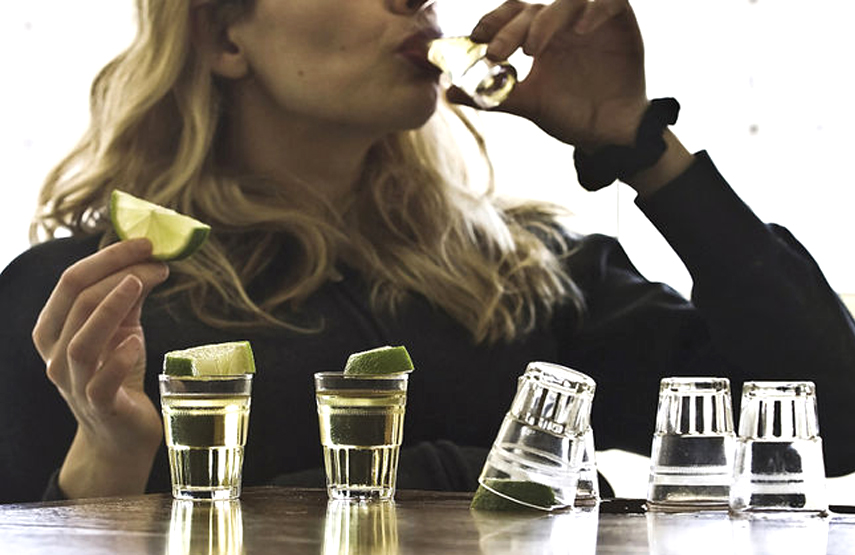
Teenage girls who regularly binge drink may fail to reach their peak bone mass, according to a new study published by Loyola Marymount University researchers in the Journal of Studies on Alcohol and Drugs.
The study, of 87 college women, found that those who regularly drank heavily over short periods of time during high school had lower bone mass in their spines. That was true even when researchers accounted for other factors that affect bone density—such as exercise, nutrition and smoking habits.
The findings suggest that poorer bone health can be added to the list of binge drinking risks for young women, said lead researcher Joseph LaBrie, a professor of psychology at LMU. LaBrie conducted the research with LMU health and human sciences Professor Hawley Almstedt.
There are already well-known short-term risks to binge-drinking, such as alcohol poisoning, car accidents, poor academic performance and heightened risk of being a victim of sexual assault. “This study identifies a potential lifetime consequence of binge drinking in young women,” LaBrie said.
The findings are based on female college students ages 18 to 20—a time when bone mass should still be accruing. Women generally reach their peak bone density at the spine between the ages of 20 and 25.
The study participants answered questionnaires about certain lifestyle factors and underwent measurements of their bone density in the lumbar spine. When it came to alcohol, the women were asked to think back to high school and report how often they’d binged, defined as having four or more drinks within two hours.
Overall, LaBrie’s team found, women who’d binged frequently since high school had lower bone mass than their peers. “Frequent” meant they’d binged at least 115 times—nearly twice a month, on average.
The findings expand on previous research linking heavy drinking to lower bone mass and higher fracture risk in older adults, suggesting that later-in-life bone issues may be linked to drinking early in life. Meanwhile, previous animal research has suggested that alcohol hinders healthy development of young bones.
LaBrie noted that anything that keeps a young woman from reaching her peak bone mass will probably raise her odds of developing osteoporosis years down the road.
For now, the findings offer girls and young women one more reason to avoid binge drinking and offers parents further support for seeking to delay onset of children’s drinking.
“When we consider bone health,” LaBrie said, “we always talk about things like exercise, calcium and vitamin D, and not smoking. We may also need to talk about avoiding binge drinking.”
The study was funded by the National Institute on Alcohol Abuse and Alcoholism. The full report can be found at the journal’s website here.



